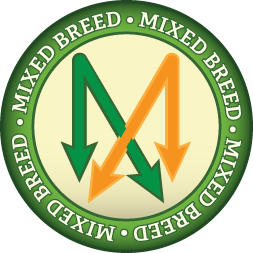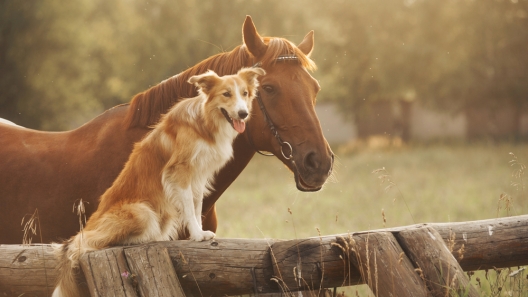
-
Activity Level:
moderate
-
Shedding Level:
low
-
Grooming Level:
low
-
Trainability:
high
-
Good for Novice Owners:
high
-
Adaptability:
moderate
-
Kid/Pet Friendly:
often
-
Prey Drive:
low
-
Watchdog:
aware
- Average Size: Small
- Average Lifespan: 11-13 years
Boston Terrier Mix Dog Breed Information
Overview
Temperament
Adaptability
Health
Owner Experience
Grooming
Activity Level
Size
Life Span
The Boston Terrier Mix is a cross between a Boston Terrier and another dog breed. Because a mixed-breed dog can inherit any combination of traits from their parents, you want to ask the breeder about the other parent breed so you have a better idea of what to expect in a specific Boston Terrier Mix. Should a Boston Terrier Mix take after their Boston Terrier parent, they’ll be a small intelligent, playful, and affectionate dog that makes a great family pet.
Boston Terriers are known for being a great companion dog and a fantastic family pet. They tend to have a gentle nature and a friendly, energetic personality. They also tend to get along with children, other dogs, and other pets. They can be prone to barking, which can become an issue if it is not curbed with early training.
If the other parent breed has similar traits, then you should be able to expect a similar temperament in a Boston Terrier Mix. In addition to asking the breeder about the other parent breed, you can also meet the mother dog in-person.
This will give you a chance to see what sort of temperament she has, the behavior she is modeling for her puppies, and the manners she is teaching them. The breeder should be socializing puppies while they have them, but it is up to you to continue training and socializing a puppy once you get them home.
Boston Terriers are moderately adaptable dogs. They can adapt to almost any type of housing, but they are very sensitive to heat as a brachycephalic dog. And, their small size and short coat mean they’ll need to bundle up in some winter dog products to stay warm when the temperature drops. They also love being with their families, so they don’t like to spend long periods of time alone.
If the other parent breed has similar traits, then you should be able to expect a similar level of adaptability in a Boston Terrier Mix. But, you do want to make sure you talk to the breeder about the other parent breed so you know what potential range to expect and to prepare for in your Boston Terrier Mix.
Although mixed-breed dogs can sometimes be healthier than purebred dogs, it’s not a guarantee. A mix can inherit the potential health conditions common to one, both, or neither or their parent breeds.
From the Boston Terrier side, potential health concerns include luxating patella, allergies, cataracts, and deafness. They also tend to have a sensitive digestive system and are prone to snoring and reverse sneezing because of their short muzzle.
You can’t do much about the short snout, but you can ask the breeder about the health and genetic history of both of the parent breeds. Reputable breeders screen their dogs to avoid passing issues on to puppies, so they should be able to answer your questions.
Boston Terriers tend to be a good fit for dog owners of all experience levels. They are intelligent and eager to please, so they pick up on things quickly. It also means they get bored easily and they can have a stubborn streak.
Although this can be a challenge for first-time dog owners, puppy training classes can help them handle it. The other parent breed could make a Boston Terrier Mix easier or more difficult to train. You want to make sure you ask about them so you know what potential range of trainability to expect.
A Boston Terrier Mix could inherit a coat that is similar to one of their parents or one that is truly a combination of both. Should they end up with a Boston Terrier coat, they will shed a little year-round, require weekly brushing, and bathing as needed.
Regardless of coat type, you will also need to care for your Boston Terrier Mix’s nails, ears, and teeth. Cutting your dog’s nails monthly is usually frequent enough to keep them from growing too long and causing issues. But, you may need to trim them more often if they’re growing quickly or not wearing down as much on their own.
It’s also a good idea to do weekly ear checks. Checking weekly and carefully cleaning your dog’s ears as needed can help prevent ear infections. Plus, if you do see anything concerning, you can get to the vet before it becomes a bigger problem.
In addition to nail care and ear care, it’s essential to prioritize dental care for dogs. Because many dog owners overlook it, gum disease is one of the most common health issues in dogs. But, by brushing your dog’s teeth or using an enzyme toothpaste every day, you can help prevent painful dental diseases later in life.
A Boston Terrier is an energetic, playful dog with moderate exercise requirements. Daily walks plus some playtime throughout the day are usually enough for this dog. They will have moments of high energy, but they are a brachycephalic dog and they are small so they will tire out quickly.
It’s a good idea to keep some safe ways to exercise flat-faced dogs in mind to make sure they don’t overdo it. The other parent breed could result in a Boston Terrier Mix that requires more or less exercise. So, it’s important to ask the breeder about them to get a better idea of what potential energy range to expect.
A fully-grown Boston Terrier usually stands 15-17 inches tall and weighs 10-25 pounds. The other parent could affect this, so you do want to ask the breeder about them and note which breed is the mother. Although it’s not a guarantee, you can also meet the mother dog in-person to get an idea of what size to expect in a Boston Terrier Mix.
A Boston Terrier generally lives for 11-13 years with some living well into their teens. The other parent breed may affect this slightly, but you should be able to expect a similar life span in a Boston Terrier Mix.









